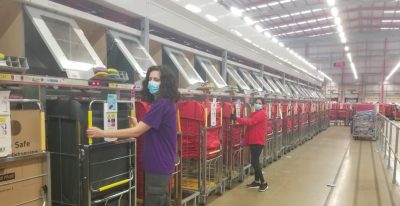
Bridgwater Branch Labour Party has organised a public discussion tomorrow evening titled ‘Time for a 4 Day Week?’, with guest speaker Joe Ryle from the 4 Day Week Campaign. Here is why we have organised it… We need to talk about work. The pandemic has exacerbated an already bad situation of low pay, overwork for some and lack of work for others. If people in Germany stopped working on a Thursday each week, they would still be more productive than us here in the UK. And we work longer hours than them. The reasons for this are the same reasons that we should be looking at how we work as we come out of the pandemic and build back better. As part of its current Jobs, Jobs, Jobs campaign the Labour Party has proposed a Job Recovery Scheme as part of the recovery. This ‘would enable businesses in key sectors to bring back more staff on reduced hours, with government subsidising a proportion of wages for the rest of the working week.’
Autonomy, a think tank that researches work, found that using such a scheme could create 500,000 new jobs in the public sector, by continuing the furlough scheme to support staff working a four day week at full pay, tapering it out over five years as the improvements in productivity took up the slack. This would particularly have an effect in the so-called ‘Red Wall’ areas where there is a high proportion of public sector jobs.
In 2018 the TUC called for a move towards a shorter working hours and higher pay for workers, publishing a report demonstrating how workers should share in the gains in productivity from automation and technological advances. The unions helped win the weekend and want to continue the historic advances in reducing working time. The CWU recently won shorter hours for the same pay and the option of a four day week in a sorting office in the Midlands. Unite won a reduction of hours for workers at Bentley.
Unions are Key
IG Metall in Germany went even further, back in 2018. One of Europe’s biggest unions, representing 2 million people, won a 28 hour week with increased pay. Unions are key to protecting jobs and improving work.
 Finland, Spain, New Zealand and now Scotland are all looking at a four day week as part of both a way out of the steepening employment crisis and to strengthen their economies. The result being better work/life balance for significant numbers of workers, new better standards for all and everyone sharing the benefits of a stronger economy.
Finland, Spain, New Zealand and now Scotland are all looking at a four day week as part of both a way out of the steepening employment crisis and to strengthen their economies. The result being better work/life balance for significant numbers of workers, new better standards for all and everyone sharing the benefits of a stronger economy.
Labour’s manifesto in the last general election pledged to work towards a 32 hour week over the next ten years. This was an advanced and future oriented goal for any country at the time. Now that the pandemic has meant that hours and work have had to be reorganised quickly and it has shown the possibility of permanently reorganising it for the better, sooner.
Britain works some of the longest hours in Europe and it’s making us ill. The TUC calculated £32 billion in unpaid overtime last year. Two million workers miss out on holiday benefits. The Health and Safety Executive measured 17.9 million days lost to work related stress and anxiety last year. Working longer is burning people out and causing high staff turnover where we need people to stay and develop a skilled and efficient workforce.
Numerous trials and studies of reduced working hours have shown that productivity greatly increases with working less than we are now. Working four days over long periods typically improved productivity by 30-40%, easily wiping out losing one day—20% of a 5 day week.
We need a public conversation
So what could we do with the extra time, and what will the extra time do for us? Time to rest will make people healthier and relieve pressure on the NHS. It provides time to care for friends and family and to help others in the community. More time means more cooking, which can be healthier and cheaper, and being more sociable. More time means more leisure, more personal projects, more time to play sport, more time for the carnival! It means less last minute shopping online and more shopping local. Less driving in a rush and more walking and cycling. There are significant benefits for the environment with reduced emissions from less commuting and less energy heavy consumerism.
We’ve seen that work can change in this crisis, and we’ve seen how much it needs to change, especially for many of our keyworkers. How it changes is down to us. We need to have a public conversation about work and how it could be so much better. And we need to translate this into action to make it happen.
Facebook event: https://fb.me/e/
